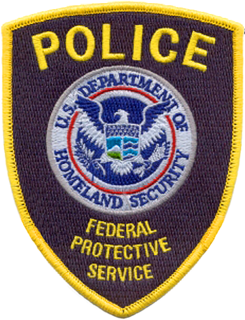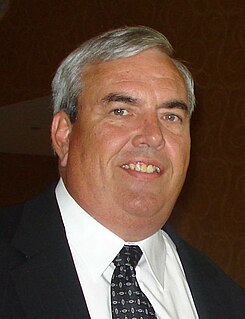Related Research Articles

The Executive Office of the President (EOP) comprises the offices and agencies that support the work of the president at the center of the executive branch of the United States federal government. The EOP consists of several offices and agencies, such as the White House Office, the National Security Council, and the Office of Management and Budget.

The United States Postal Service is an independent agency of the executive branch of the United States federal government responsible for providing postal service in the United States, including its insular areas and associated states. It is one of the few government agencies explicitly authorized by the United States Constitution. The USPS, as of 2021, has 516,636 career employees and 136,531 non-career employees.

The United States Post Office Department was the predecessor of the United States Postal Service, in the form of a Cabinet department, officially from 1872 to 1971. It was headed by the postmaster general.
The United States budget process is the framework used by Congress and the President of the United States to formulate and create the United States federal budget. The process was established by the Budget and Accounting Act of 1921, the Congressional Budget and Impoundment Control Act of 1974, and additional budget legislation.
The Air Commerce Act of 1926 created an Aeronautic Branch of the United States Department of Commerce. Its functions included testing and licensing of pilots, certification of aircraft and investigation of accidents.

The Civil Aeronautics Board (CAB) was an agency of the federal government of the United States, formed in 1938 and abolished in 1985, that regulated aviation services including scheduled passenger airline service and provided air accident investigation. The agency headquarters were in Washington, D.C.

United States Senate Committee on Civil Service is a defunct committee of the United States Senate.

The Federal Protective Service (FPS) is the uniformed security police division of the United States Department of Homeland Security (DHS). FPS is "the federal agency charged with protecting and delivering integrated law enforcement and security services to facilities owned or leased by the General Services Administration (GSA)"—over 9,000 buildings—and their occupants.

John E. "Jack" Potter is the president and CEO of the Metropolitan Washington Airports Authority since July 18, 2011. He is the former United States Postmaster General and CEO of the United States Postal Service (USPS), having become the 72nd postmaster general on June 1, 2001. Potter is the second longest-serving postmaster general, following Gideon Granger.

The United States House Committee on House Administration deals with the general administration matters of the United States House of Representatives.

The United States Postal Inspection Service (USPIS), or the Postal Inspectors, is the law enforcement arm of the United States Postal Service. It supports and protects the U.S. Postal Service, its employees, infrastructure, and customers by enforcing the laws that defend the nation's mail system from illegal or dangerous use. Its jurisdiction covers any "crimes that may adversely affect or fraudulently use the U.S. Mail, the postal system or postal employees." With roots going back to the late 18th century, the USPIS is the oldest continually operating federal law enforcement agency.
Congressional oversight is oversight by the United States Congress over the Executive Branch, including the numerous U.S. federal agencies. Congressional oversight includes the review, monitoring, and supervision of federal agencies, programs, activities, and policy implementation. Congress exercises this power largely through its congressional committee system. Oversight also occurs in a wide variety of congressional activities and contexts. These include authorization, appropriations, investigative, and legislative hearings by standing committees; which is specialized investigations by select committees; and reviews and studies by congressional support agencies and staff.
The Congressional Post Office scandal refers to the discovery of corruption among various Congressional Post Office employees and members of the United States House of Representatives, investigated 1991–95, climaxing in House Ways and Means Committee chairman Dan Rostenkowski (D-IL) pleading guilty in 1996 to reduced charges of mail fraud.
The United States federal civil service is the civilian workforce of the United States federal government's departments and agencies. The federal civil service was established in 1871. U.S. state and local government entities often have comparable civil service systems that are modeled on the national system, in varying degrees.
The Lloyd–La Follette Act of 1912 began the process of protecting civil servants in the United States from unwarranted or abusive removal by codifying "just cause" standards previously embodied in presidential orders. It defines "just causes" as those that would promote the "efficiency of the service." August 24, 1912, § 6, 37 Stat. 555, 5 U.S.C. § 7511
The Subcommittee on Government Operations and Border Management is one of the four subcommittees within the Senate Committee on Homeland Security and Governmental Affairs. It was known in previous Congresses as the Subcommittee on Regulatory Affairs and Federal Management
Article I, Section 8, Clause 7 of the United States Constitution, known as the Postal Clause or the Postal Power, empowers Congress "To establish Post Offices and post Roads." The Post Office has the constitutional authority to designate mail routes. The Post Office is also empowered to construct or designate post offices with the implied authority to carry, deliver, and regulate the mail of the United States as a whole. The Postal Power also includes the power to designate certain materials as non-mailable, and to pass statutes criminalizing abuses of the postal system

The National Rural Letter Carriers' Association (NRLCA) is an American labor union that represents the Rural letter carriers of the United States Postal Service. The purpose of this Association shall be to "improve the methods used by rural letter carriers, to benefit their conditions of labor with the United States Postal Service (USPS), and to promote a fraternal spirit among its members."

The Consolidated Appropriations Act, 2012 is an act passed by the 112th United States Congress.

The Transportation, Housing and Urban Development, and Related Agencies Appropriations Act, 2015 is an appropriations bill that would provide funding for the United States Department of Transportation and the United States Department of Housing and Urban Development (HUD) for fiscal year 2015.
References
- 1 2 3 4 "Chapter 16. Records of the Post Office and Civil Service Committee and Its Predecessors". Guide to the Records of the U.S. House of Representatives at the National Archives, 1789-1989 (Record Group 233). National Archives and Records Administration. Retrieved July 26, 2016.
![]() This article incorporates public domain material from websites or documents ofthe National Archives and Records Administration .
This article incorporates public domain material from websites or documents ofthe National Archives and Records Administration .